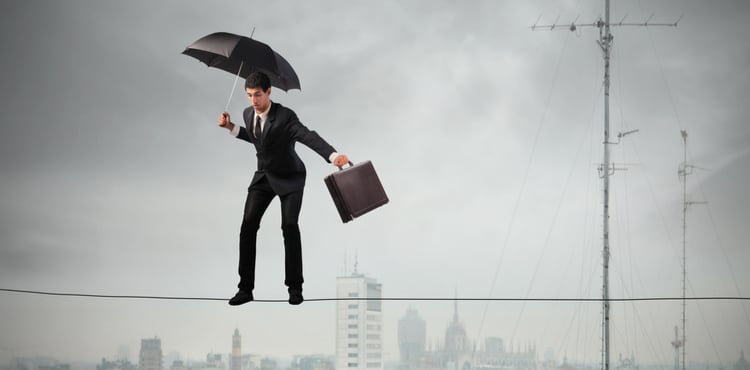
Economic uncertainty, disastrous weather events, and temporary business closures are just a few reasons why small business owners might be tempted to cancel one or more insurance policies, but there are a number of things business owners should consider before they do so.

Table of contents:
While it’s a good idea to review your coverage regularly as part of your risk management plan, canceling your insurance policy can wind up costing a lot more than you might save in premiums.
There are a number of things that every business owner should consider before canceling any of their small business insurance policies, including the financial risks of not having coverage, as well as the elevated cost of re-purchasing a policy after it has been canceled.
Take the following into consideration when you are debating whether you should cancel a business insurance policy.
If you cancel any type of coverage before you have a replacement policy in place, you leave your business exposed to uninsured risks. Some policies will give you a coverage extension or a bit of a grace period if you’re late on renewing a policy, yet this may not be available if you cancel your coverage.
It might seem logical to cancel a general liability policy if you’ve never had a slip and fall incident at your business, yet such an accident could happen at any time. This is especially true if you frequently have customers on site.
If you’re canceling a policy in an attempt to keep your insurance premiums low, keep in mind that you could wind up with more expensive premiums instead. Starting and stopping coverage can be a red flag for insurance carriers, making it more likely you’ll face a rate increase down the road when you decide to again pursue insurance after closing your business.
For example, throughout the COVID-19 pandemic, most small business insurance coverage was unlikely to cover temporary closures or business income loss from a virus, bacterium, or other microorganism (unless the owner had previously purchased a communicable disease rider).
While many restaurants and other "non-essential" businesses continued operate in a limited capacity and had reduced interactions with the public, it was actually a more cost-efficient plan in the long term to maintain coverage throughout, rather than stop and start again with increased premiums for years to come from their insurance carrier.
The bottom line is you should almost always purchase a replacement policy before you cancel your current coverage.
You may also like
Having the right small business insurance is important. And re-evaluating your business’ insurance needs regularly is just as important. One step is to make sure you’re working with the right insurance company for your business. We’ll look at when and how you should switch carriers, as well as how to make it easy.
A claims-made policy only provides coverage benefits if you file a claim while it’s active. If you try to file a claim after canceling such a policy, it won’t be covered.
Typically, errors and omissions insurance (sometimes called professional liability or malpractice insurance) is claims-made coverage. That means in order to receive your benefits, your policy:
For example, if you’re a CPA who makes an expensive mistake on a client’s taxes, this would be covered by your claims-made E&O insurance. However, if you canceled your insurance for any reason (retirement, etc.), then any claims filed after your cancellation date would not be covered.
This varies slightly from occurrence-based policies, such as general liability insurance, which covers losses that happen during the time you have the policy, regardless of when you file a claim. It is designed to protect you against incidents that could cause injury or damage years after they occur. However, per-occurrence policies are typically more costly as they must project future claims costs, so they could be a risky choice for a business.
You should always consult your insurance agent before you cancel your policy – especially if it's a claims-made policy.
You can often buy an E&O policy with “tail” or “prior acts” coverage. Tail coverage insures you against claims made after a policy is canceled. Prior acts is coverage that you would buy from a new insurance provider. It offers retroactive protection for past mistakes if they haven’t yet been reported to you.
The impulse to ditch your current policy because the rates are too high may actually end up costing you more money when all is said done. Your agent may be able to help you tweak your coverage instead so that it better aligns with your budget and doesn't skimp on protection.
Understanding how to compare coverage offerings is a key skill that could also help you save more money in the long run.